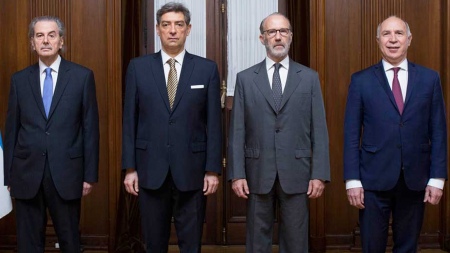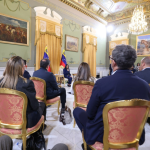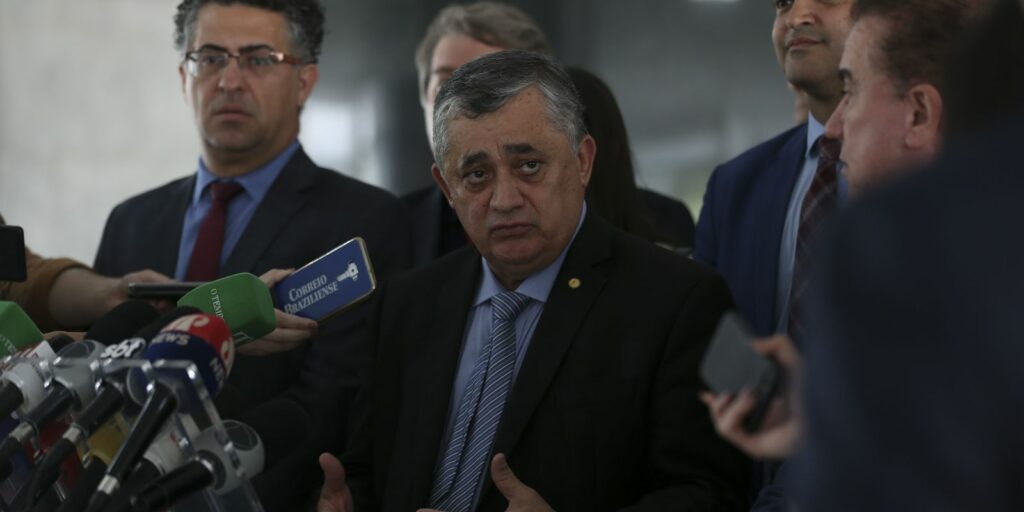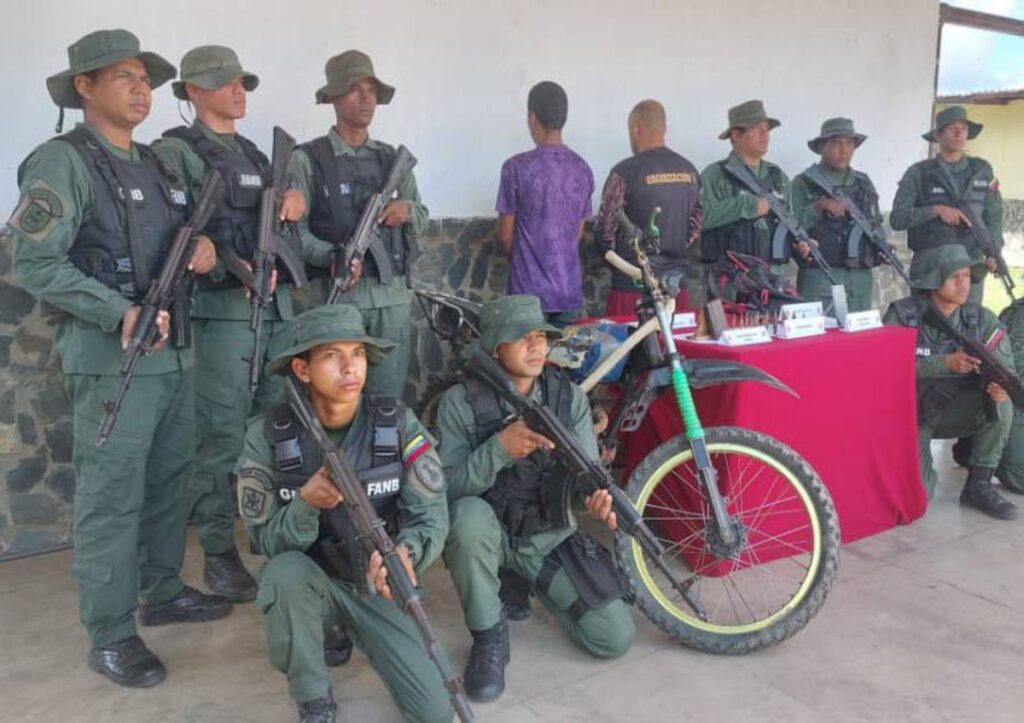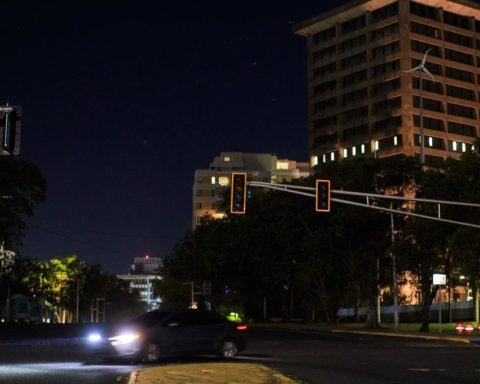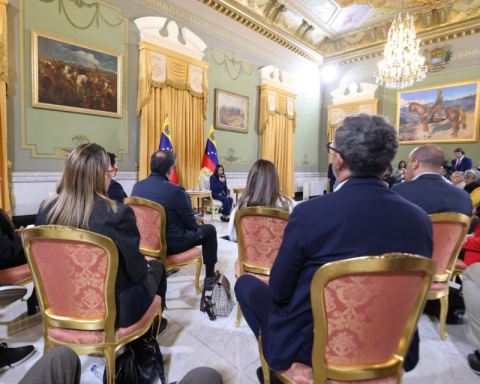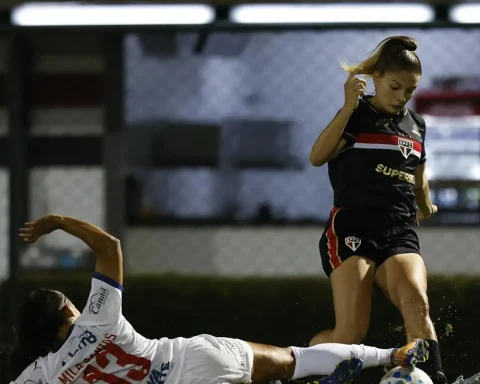Deputy Eduardo Valdés assured this Thursday that the judges of the Supreme Court “violated” articles of the National Constitution and they did not show “suitability” in the ruling for the co-participation funds of the city of Buenos Aires, by restoring the law of the Council of the Magistracy repealed by Congress, in the application of the law of two for one in cases of lesa humanity and in the management of judicial social work.
The legislator of the Frente de Todos (FdT) said that, According to article 112 of the National Constitution, the members of the Court “must administer justice well and legally.”
“Article 116 of the National Constitution establishes that judges can only decide on one cause, and a cause is a specific dispute between opposing parties,” he pointed out and said that “in addition, they should not issue statements or queries, they should only speak to through the sentences, and these must be in accordance with current law and the evidence presented”.
“If those articles are not met, then it becomes an irrational act, that configures the poor performance and demonstrates the lack of suitability for the position”stated and maintained that “according to article 16 of the National Constitution, all citizens are equal before the law and are admissible in jobs without any other condition than suitability.”
Valdés opened his speech stating: “I ratify the draft resolution that calls for the impeachment of ministers Horacio Rosatti, Carlos Rozenkratz, Juan Carlos Maqueda and Ricardo Lorenzetti.”
He also pointed out that Rosatti is accused of “crime in the commission of his functions, a project that also contains the request of the President of the Nation and 11 governors, presented in this chamber with the signature of 15 national deputies.”
Valdés based as one of the causes of poor performance against the judges of the court the ruling on Buenos Aires co-participation, since “they distributed public resources violating article 128 of the National Constitution by not summoning the governors.”
Along these lines, the legislator pointed out that “It is incomprehensible that the Court has not even answered the governors from Buenos Aires, Santiago del Estero, Chubut, La Rioja, Santa Cruz, Catamarca, Formosa, Chaco, Tucumán, Santa Fe, Misiones, La Pampa, Entre Ríos and Tierra del Fuego who appeared as amicus curiae of the court”.
“Why didn’t you listen to the governors? Could it be because of Rosatti’s relationship with Rodríguez Larreta, channeled through Silvio Robles and Marcelo D’Alessandro, who had already been challenged by the National Treasury Attorney for that link ?”, I ask.
Likewise, it stressed that “the Supreme Court of Justice of the Nation, assuming legislative functions, prohibited by the National Constitution, decides to allocate public resources, according to its own criteria, assuming functions that it only authorizes to parliament.”

The committee meeting
The Impeachment Committee of the Chamber of Deputies began at 11:10 a.m. to receive the arguments of pro-government and opposition legislators, associations of jurists and social rights lawyers, and lawyers on the requests for the prosecution of the ministers of the Supreme Court of Justice Horacio Rosatti, Carlos Rosenkrantz, Juan Carlos Maqueda and Ricardo Lorenzetti, whom they accuse of poor performance of their duties.
When opening the second meeting, the president of that parliamentary body, Carolina Gaillard, said that today the authors of 14 files will present and informed that Senator Juliana Di Tullio will not attend, who communicated it through a note.
Pro-government and opposition legislators, associations of jurists and social rights, and lawyers present before the Impeachment Committee of the Chamber of Deputies their grounds on the requests for prosecution of the ministers of the Supreme Court of Justice, Horacio Rosatti, Carlos Rosenkrantz, Juan Carlos Maqueda and Ricardo Lorenzetti, whom they accuse of poor performance of their duties.
The admissibility of impeachment will be defined at the next meeting Thursday, February 9 by simple majorityand there the ruling party is in a position to impose its position to open the summary and start the investigation which will contemplate requesting documentation, summoning the accused, summoning witnesses, and in the event that they do not attend, requesting their summons by the public force.
The list of exhibitors was opened by the deputy of the Civic Coalition, Paula Oliveto, who assured that the request for impeachment against Lorenzetti “belongs to our block, dates from 2017 and was presented by Elisa Carrió.”
“At that time we were the government and he was not accompanied by President Mauricio Macri or his Justice Minister Germán Garavano,” he added, highlighting the “respect” of his colleagues from other blocks that make up JXC.
Oliveto pointed out that the prosecution request “does not respond to any motivation to put pressure on the Supreme Court nor is it a factor of extortion.”
This Thursday exposed by the Argentine Association of Jurists Claudia Rocca, and by the Civil Association for the Enforceability of Social Rights (Demand) Federico Méndez.
The individuals Antonio De Martino, Ricardo La Greca and Patricia Isasa give their grounds in relation to the request they made against the four members of the highest court, while the lawyer Pablo Llonto together with Diego Sánchez will do so on the writings presented in relation to the performance of Rosatti in cases of crimes against humanity.
They also expose the Deputy Eduardo Valdesabout the project promoted by the ruling party at the request of President Alberto Fernández and a dozen provincial leaders.
What are the questions
The accusations of the Executive are based mainly in the ruling of the Court that benefited the city of Buenos Aires in the litigation that he maintains with the Nation for co-participating funds, and also for reinstating after 16 years the law that governed the operation of the Council of the Magistracy with a composition of 20 members, and that had been repealed by Congress.
The highest court is also challenged having legitimized in 2017 the calculation of the “2×1” so that Luis Muiña, a repressor of the last civil-military dictatorship, agreed to the benefit of probation.
Another cause is a series of “irregularities, breaches and mismanagement” in the Obra Social del Poder Judicial of the Nation (Ospjn), which is administered by the Court itself.
They also do it for the FdT Vanesa Siley, María Rosa Martínez, Pablo Carro, for the three files processed by the ruling party.
In the first case, they will be analyzed complaints against Rosenkrantz, and then two presentations against the four members of the highest court.
Meanwhile, the deputy of the Civic Coalition (CC), Paula Olivetowill expose about complaints promoted by the CC against Lorenzetti.
the senator Juliana di Tulio, from the FdT, will do the same in relation to two files that promotes: one against the four members of the Court and another focused on Rosatti.
After listening to the promoters of the 14 political trials and that the admissibility is voted, the collection of evidence will begin and there the summons of witnesses must be diagrammed.
The FdT wants to summon the Minister of the Interior, Eduardo “Wado” de Pedro; to provincial leaders; Silvio Robles – Rosatti’s spokesman and right-hand man – and Marcelo D’Alessandro, Buenos Aires Minister of Security and Justice who is on leave.
chat exchanges
At the end of last year, a series of chats exchanged through the Telegram application that were attributed to D’Alessandro emerged in the media, and in several of those messages there were exchanges between the Buenos Aires official and Robles.
In these conversations, Rosatti’s collaborator suggested to the Buenos Aires minister different strategies that the Government of Horacio Rodríguez Larreta should carry out in the face of the dispute that the city of Buenos Aires had with the Nation for the additional co-participatory funds that Mauricio Macri redirected to the Buenos Aires district. in 2016.
The ruling party intends that these chats are also a reason for analysis in the Impeachment Committee, as part of the removal process of the current magistrates of the Court.
